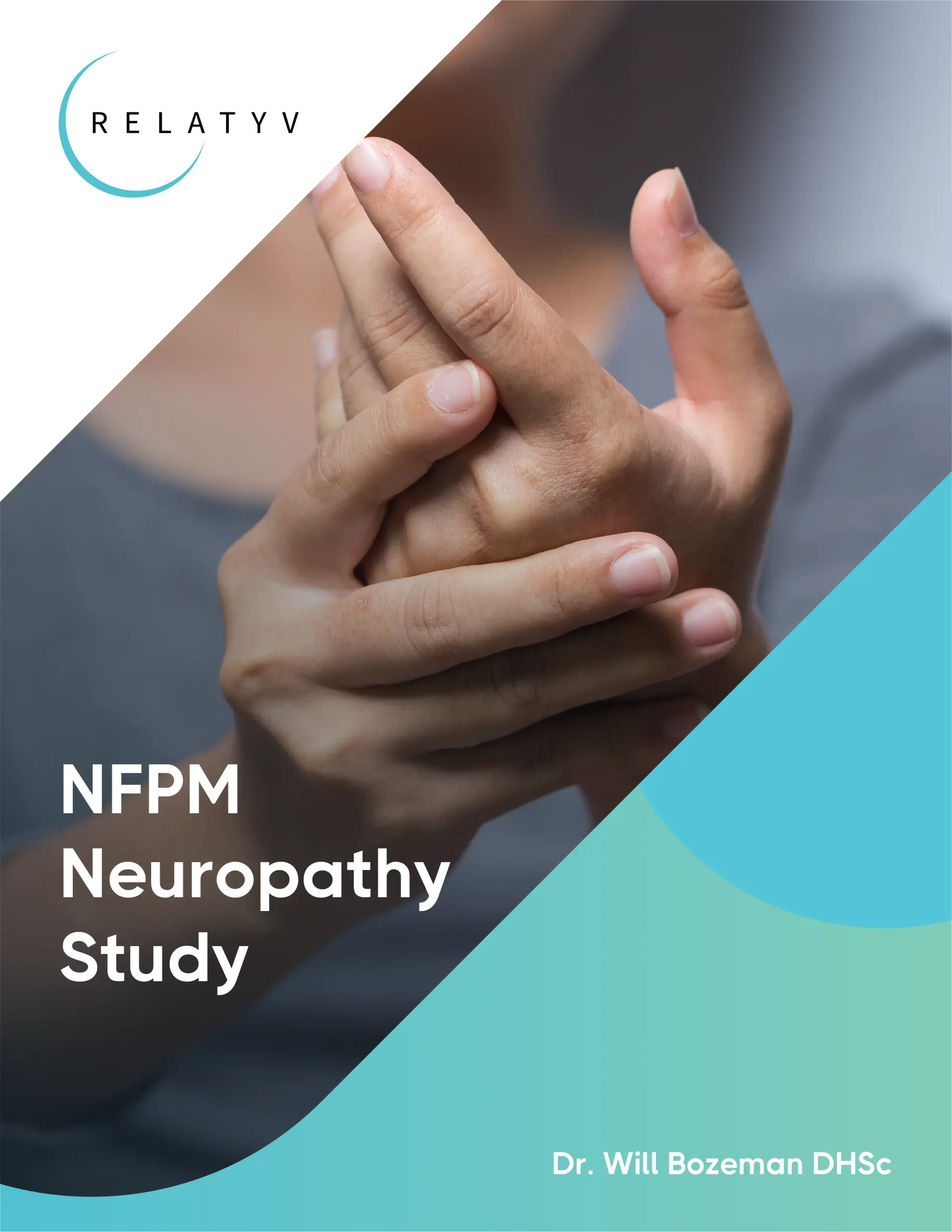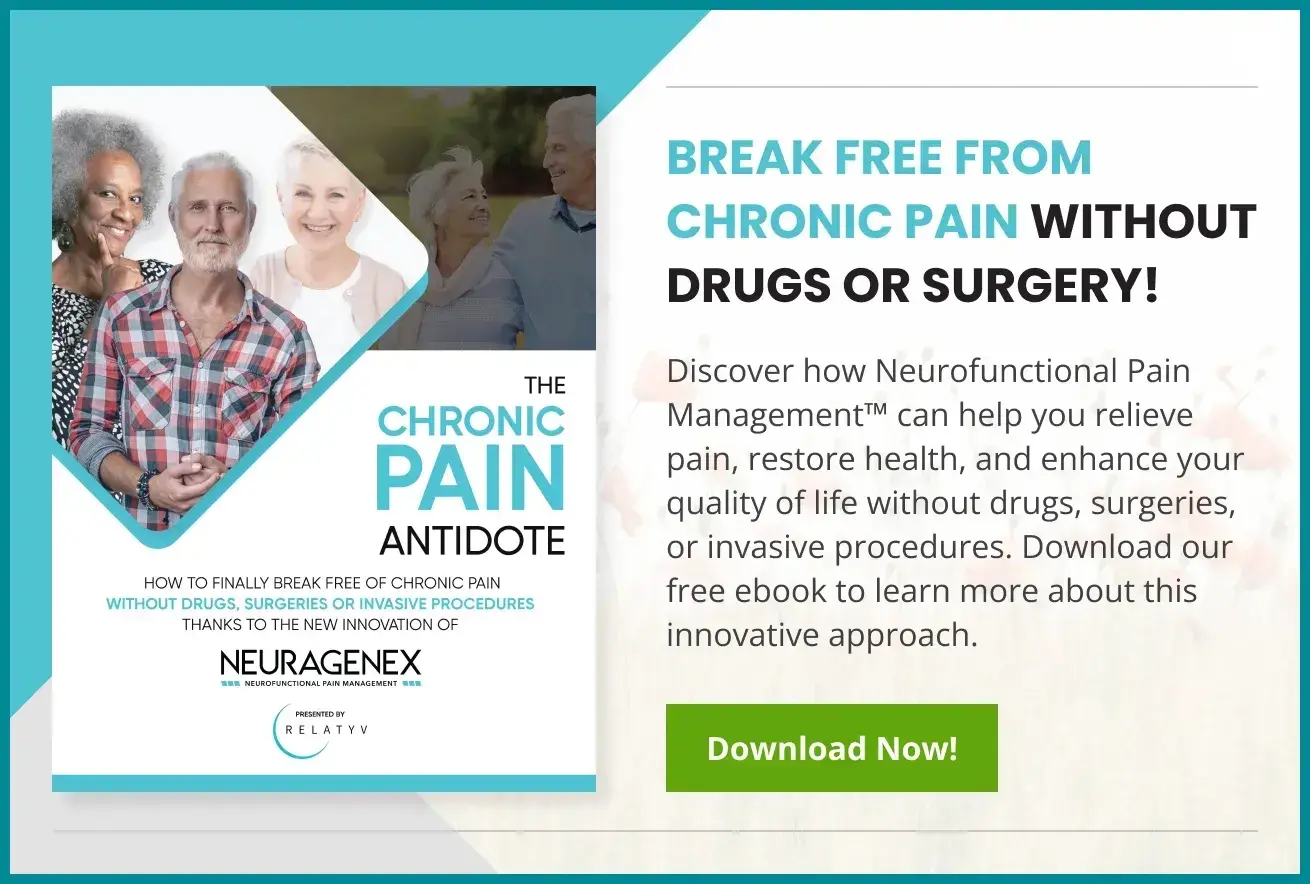Muscle Pain

Everything You Need To Know About Muscle Pain Treatment
Read More
June 20, 2023
Muscle pain can be a frustrating obstacle that affects your daily life and limits your ability to fully enjoy doing the activities you love.
Whether you have overexerted your muscles, have an underlying medical condition, or have fatigued muscles from intense exercise, finding effective muscle pain treatments that work for you is important. Treatments can ease pain, help to restore normal muscle function, and get you back on track.
When looking at common treatments that relieve muscle pain, it is important to consider the underlying cause, the severity of the pain, and its specific location. There are various treatments available which range from over-the-counter and prescription pain relievers to non-pharmaceutical remedies.
Within this article, we outline all you need to know about muscle pain – its causes, diagnosis, and the best available treatment options. Furthermore, we recognize that muscle pain can become more prevalent as we age.
That’s why we have also highlighted the advanced innovative therapies that are currently available for the treatment of chronic (long-lasting) muscle pain.
By sharing our expertise, we hope to provide you with practical insights and empower you to make informed decisions about your muscle pain treatment, leading you to regain your freedom and improve your overall quality of life.
Muscle pain can occur all throughout the body, and the location and severity of the pain will depend on the specific muscles involved.
Generally, it is more common to experience muscle pain in the body’s larger and more complex muscles. This is because they are frequently used, involved in the body’s movement, and support the weight of the body. We’ll focus on some of these main areas, which include the neck, shoulders, back, and legs.
Whether it is caused by poor posture, muscle strain, and tension, or an injury such as whiplash, pain in the neck muscles can cause stiffness, limit the range of motion or cause frustrating headaches.
The intricate muscles of the shoulders are commonly overused through repetitive movements, heavy lifting, or sports injuries. Painful symptoms that feel like dull aches, sharp twinges, or restricted movement can affect any of the muscles spanning across the back of the shoulder blade, as well as the front trapezius and deltoid muscles.
With a total of 40 muscles, the back is very complex and susceptible to muscle strain and injury. Poor lifting techniques, sudden twisting movements, or prolonged periods of poor posture can lead to muscle pain. Discomfort in the muscles around the back of the ribs can be particularly awkward, affecting deep breathing and the ability to hold certain body positions.
Pain throughout the muscles of the leg can affect different areas, such as the thighs, hamstrings, and calves. Each individual part of the leg has its own set of causes and symptoms of muscle pain.
Typically, muscle pain that occurs in the thighs and hamstrings occurs as a result of overexertion through exercise or imbalances in muscle strength, making it difficult to walk, run, or climb stairs. This pain is usually described as a tight, sharp, or dull aching sensation.
Pain throughout the calves is usually associated with muscle cramps, strains, or inadequate blood flow. This can feel like a tight, pulling sensation or a sharp pain in the back of the leg. Dehydration, overuse, or sudden movements are common triggers for calf muscle pain.
The prognosis for muscle pain will depend on what is causing the pain and the treatment options available. A minor muscle strain or overexertion may resolve in a few days to a couple of weeks.
However, it is important to note that all muscle pains will benefit from even gentle treatments as they will ultimately ease discomfort, reduce recovery time, and minimize the risk of the injury worsening.
If your muscle pain becomes long-lasting over a number of weeks or months, it is a sign to explore that pain further. Ignoring chronic muscle soreness and discomfort has the potential to make injuries worse, leading to muscle imbalances, muscle wastage, reduced flexibility, and more discomfort.
Taking proactive measures to address muscle pain, regardless of its severity, can contribute to a better overall outcome.
Most muscle pains can typically be managed at home with simple treatments. However, there are certain symptoms that require medical attention from your healthcare provider should you experience them. These include
Furthermore, muscle pains can be associated with more serious underlying conditions. If you experience any of the following symptoms alongside muscle pain, it is important to seek medical attention
If there is no clear explanation for your muscle pain or your pain has become a chronic problem, it’s time to seek advice and a diagnosis from a healthcare professional.
A doctor can complete a comprehensive physical assessment as well as order a range of diagnostic tests to help determine the underlying cause of your pain. Some common tests include:
A complete blood test can provide insights into your body’s inflammation levels, muscle enzymes, and hormone or electrolyte levels. They can provide valuable insights into whether or not you are suffering from an infection, imbalances, deficiencies, or any other hidden reason for muscle pain.
An MRI generates detailed images of the muscles, tendons, and surrounding tissues. The scan uses magnetic fields and radio waves to help identify any structural changes or damages that could contribute to muscle pain.
EMGs measure the electrical activity of your muscles and nerves. It can help determine if there is any muscle dysfunction, nerve damage, or abnormalities that may cause muscle pain.
In some circumstances, a muscle biopsy may be necessary. This a minor procedure where a sample of your muscle tissue is taken through a biopsy. The biopsy is then examined closely in a laboratory where any specific defects, disorders, or inflammatory conditions can be detected in the muscle cells.
These diagnostics help healthcare professionals lead to an accurate diagnosis and pinpoint the cause of muscle pain. Following this, an appropriate and individualized treatment plan can be developed.
When it comes to relieving muscle pain, traditional medicine takes into account the specific diagnosis and underlying cause. If your pain is related to a more complex condition, the treatment strategy may vary and involve addressing the root cause of the condition.
In these cases, a combination of pharmaceutical treatment and complementary interventions is the most common approach to tackling the pain and restoring function. So what are the most common interventions prescribed to relieve muscle pain?
Pain is your body’s warning sign! Keeping damaged muscles rested wherever possible is a fundamental element in reducing painful symptoms. Minimizing physical activity and limiting weight bearing allow the healing process to occur without causing further muscle strain. Additionally, elevating the affected muscle is going to help reduce unwanted inflammation and swelling, leading to a quicker recovery.
Ice and heat therapy continues to be a simple and effective way to manage muscle pain. Ice packs are great for an initial injury; it helps to reduce blood flow and minimize pain and inflammation.
Whereas a warm compress is great for managing ongoing symptoms to help relax the muscles, improve circulation, and ease muscle stiffness. Ideally, both ice and heat therapy should be applied for 15-20 minutes at a time to reduce the risk of skin irritation.
A compression bandage around the affected muscles can relieve pain by decreasing swelling and providing additional support. Be careful not to constrict the area too tightly and completely inhibit blood flow; the surrounding skin should remain pink and warm to the touch.
Taking a warm bath or shower is a great method for relaxing muscles and reducing tension. Warm water will dilate your blood vessels, enhancing blood flow and the natural release of endorphins which lifts your mood and helps you relax.
The addition of Epsom or magnesium salts sprinkled in the bathtub is an age-old remedy that may help reduce inflammation and eliminate toxins.
Over-the-counter pain relievers can be effective at temporarily relieving mild to moderate muscle pain. Medications such as acetaminophen, aspirin, ibuprofen, and naproxen can help reduce pain and inflammation.
However, taking anti-inflammatories over a long period of time is not recommended and may be harmful. It is important to talk to your doctor about long-term pharmacological pain management options.
Gentle stretching and physical therapy exercises benefit your muscles by aiding their mobility and promoting the healing process. It’s important to follow a regime that is specific to your injury, as this can help reduce swelling, ease stiffness, and strengthen surrounding muscles without risking further damage.
Complementary therapies, including massage, acupuncture, or reflexology, may relieve muscle pain by targeting specific trigger points, promoting relaxation, and enhancing blood flow to the affected muscles.
Additionally, relaxation practices through meditation or taking time out in nature can help reduce your body’s overall stress and tension, increase endorphins, and help your muscles relax.
Chronic muscle pain can be complex, and traditional treatments may not always be successful in providing sufficient relief.
However, the option of non-pharmaceutical treatments through innovative therapies can offer effective solutions in addressing your muscle pain more effectively. By exploring Relatyv advanced approaches to pain relief, you may finally find a long-lasting solution to alleviate your muscle pain.
Electroanalgesia relieves muscle pain by utilizing cutting-edge, high-frequency electronic waves that reach deep down into your muscles. This painless, non-invasive treatment has been used for decades and works by promoting muscle healing at a cellular level.
Electroanalgesia reduces inflammation and blocks pain signals, ultimately eliminating pain and discomfort right at the source. At Relatyv, we have seen patients experience great results when receiving electroanalgesia over multiple sessions or when it is combined with specialized IV therapy and lifestyle coaching.
Intravenous (IV) therapy is another non-pharmaceutical treatment option that can relieve muscle pain. IV therapy re-introduces nutrients, vitamins, and minerals to the body directly through the bloodstream to reduce inflammation, enhance the body’s healing processes, and promote tissue repair.
This is especially beneficial for chronic muscle pain while additionally helping to improve energy levels and reduce fatigue.
At Relatyv, we customize IV therapy programs for patients by analyzing their bloodwork and addressing specific needs, such as deficiencies, hydration, or electrolyte imbalances, aiming to support natural healing processes.
At Relatyv, we believe in a holistic approach to muscle pain treatment, managing all aspects of your life for effective pain management.
Our comprehensive range of guidance, resources, and techniques related to diet, exercise, and stress management, is carefully individualized to reduce or even eliminate your painful symptoms and improve your overall well-being.
We recognize the uniqueness of every individual’s pain journey. That’s why we also offer counseling services to help you gain a better understanding of your specific condition and develop effective strategies to cope with your pain. With lifestyle counseling, you can take control of your pain and enjoy a more fulfilling life.
Our specialized team at Relatyv is dedicated to providing safe and effective relief for muscle pain. Our advanced therapies offer a non-pharmaceutical, non-surgical, non-chiropractic, and non-invasive option that is specifically designed to address the complexities of long-lasting muscle pain.
Through our innovative techniques, we strive to deliver personalized treatment options that provide relief to those who have been struggling with persistent stress and discomfort. Whether it is through electroanalgesia, IV therapy, lifestyle counseling, or other advanced modalities, our aim is to provide options that target the root cause of your muscle pain.
We invite you to explore the possibilities with Relatyv, where we want you to safely and effectively eliminate your pain, restore your function, and help you enjoy life to the fullest once again.
About the Author
Will is a healthcare executive, innovator, entrepreneur, inventor, and writer with a wide range of experience in the medical field. Will has multiple degrees in a wide range of subjects that give depth to his capability as an entrepreneur and capacity to operate as an innovative healthcare executive.
Share on Social Media




You can see how this popup was set up in our step-by-step guide: https://wppopupmaker.com/guides/auto-opening-announcement-popups/
You can see how this popup was set up in our step-by-step guide: https://wppopupmaker.com/guides/auto-opening-announcement-popups/
Neurofunctional Pain Management Overview
Symptoms
Conditions Treated
Treatments
Articles by Category
Locations
Colorado
Wisconsin
Georgia
Hiram
Lawrenceville
Marietta
Powder Springs
Texas
Waco
Victoria
Illinois
Buffalo Grove
New Lenox
St. Charles
Arizona
Tucson
Waddell
Arlington
Avondale
Buckeye
Superior
Mesa
Palo Verde
Morristown
Tempe
Chandler
Anthem
Eloy
Florence
Fort McDowell
Phoenix
El Mirage
Coolidge
Gilbert
Arizona City
Casa Grande
Casa Blanca
Aguila
Sacaton
Apache Junction
Kearny
Stanfield
Goodyear
Litchfield Park
Alabama
Arkansas
California
Florida
Idaho
Indiana
Iowa
Kansas
Louisiana
Maryland
Michigan
Rhode Island
Minnesota
Mississippi
Nevada
New Jersey
New Mexico
North Carolina
Ohio
Pennsylvania
South Dakota
Tennessee
Utah
Virginia
Washington

